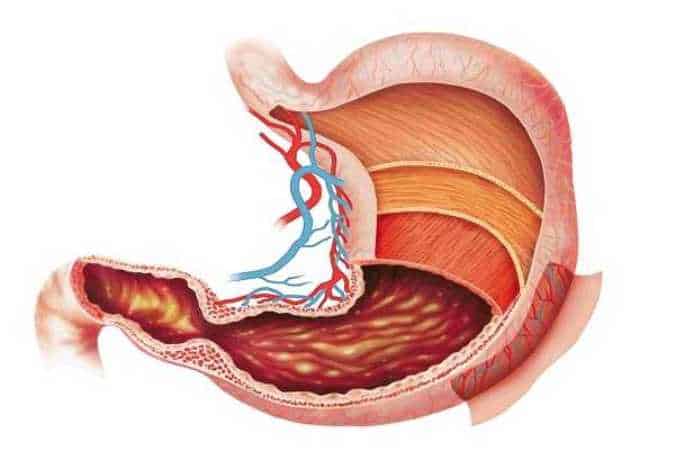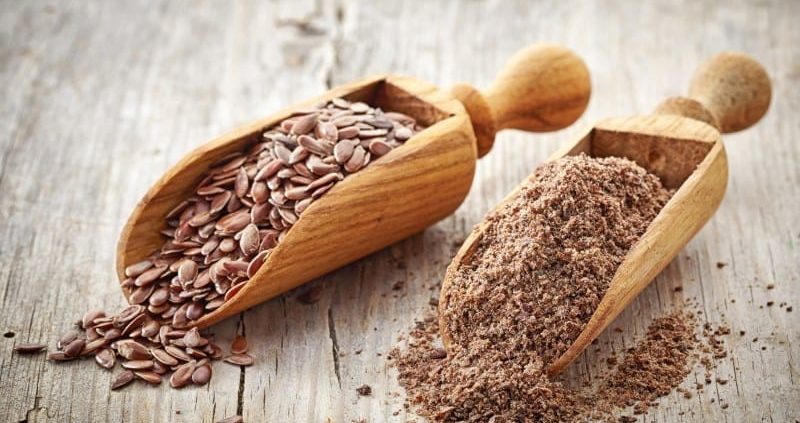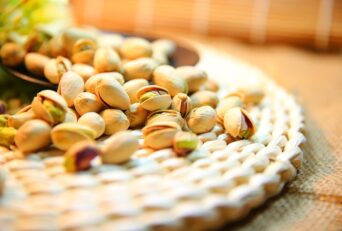Table of Contents
What Is Flaxseeds?
Flax seeds are brown and rich in omega-3 fatty acids, also known as alpha-linolenic acid. Flaxseeds are the source of a vegetable oil known as flax or linseed oil.
Flax seeds are well known for its health-benefitting properties. These include the treatment of hormonal imbalance, sugar cravings, excessive weight, high cholesterol, skin disorders, cancer, and much more.
In this article, we will focus on the seeds of this plant, known as flaxseeds. You can find information about their nutritional content, uses, health benefits, and side effects.
Health Benefits Of Flaxseeds
Flaxseeds are small brown seeds that have huge benefits for the health when they are consumed. They are rich in highly nutritional compounds like omega-3 fatty acids, antioxidants, and much more. These provide the following benefits to the body:
1. Regulates The Blood Sugar Levels:
Flaxseeds can bring down the level of sugar in the blood and restore its normal level when they are regularly consumed. This is attributed to the presence of lignans in their composition.
2. Prevents Cardiac Disorders:
The consumption of flaxseeds can maintain the cardiac health and prevent diseases like plaque formation in the arteries, atherosclerosis (also known as artery stiffness), palpitation, and oxidative stress. They also lower the levels of cholesterol and regulate its level.
3. Lower The Cholesterol Levels:
The soluble fibers that are present flaxseeds have a trapping effect on the fats and cholesterol and prevent their absorption by the intestinal tract. They have a similar effect on the bile from the gallbladder.
4. Protects The System Against Cancer:
The omega-3 fatty acids and antioxidants in flaxseeds can prevent conditions like colon cancer, prostate cancer, or breast cancer.The lignans present in them have an anti-proliferative effect on tumor cells, especially those that are hormone sensitive.
This is because of the lignans from flaxseeds can be converted into hormone balancing substances in the intestine.They are also said to reduce the risk of ovarian and endometrial cancer.
5. Decreases Inflammation:
The different components of flax seeds can restrict the release of inflammatory agents. They are especially beneficial for the treatment of Parkinson’s disease and arthritis.
6. Relieve Menopausal Symptoms:
The antioxidant substances present in flaxseeds can regulate hormonal imbalance and prevent and treat the symptoms associated with it, especially hot flaxes. Also, the lignans in the flaxseeds are a beneficial preventive measure against osteoporosis. They also help in regulating the menstruation cycle.
7. Improve The Digestive System:

Flaxseeds are rich in a substance known as mucilage gum. This is a water-soluble fiber that promotes the cleansing of the intestinal tract and nutrient absorption. They also have water-insoluble fibers that can enhance detoxification of the colon and fat loss, and reduce sugar cravings.
Their anti-inflammatory properties decrease gut inflammation and help in the healing of digestive ailments such as Crohn’s disease. They are especially effective against constipation when they are taken along with carrot juice.
8. Maintain The Hair And Skin Healthy:

Adding two tablespoons of flax seeds into your daily diet can greatly benefit the health and appearance of your hair, skin, and nails. This is due to their contents in essential fats and vitamins.
They can treat disorders like eczema, acne, and rosacea. They also reduce the dryness in the rest of the body, thus treating the dry eye syndrome.
9. Prevent Skin Cancer:
Researchers have found that the consumption of flax seeds could reduce the melanoma tumors, and prevent the damage caused by excessive tanning of the skin.
10. Helps In Weight Loss:
Flaxseeds are high in healthy fats and fiber. These compounds reduce food cravings and provide the sensation a full stomach with fewer calories. This eventually leads to loss of weight.
11. Serves As Antioxidants:
The antioxidant effects of flax seeds help in preventing hormonal imbalance, aging, and cell damage. They also enhance the development of probiotics in the intestine and help in the removal of disease-causing agents like candida and yeast.
12. Remediate Cold And Flus:

Flaxseeds have lignans that have anti-bacterial and anti-viral properties that can help in the prevention and treatment of colds and flu.
13. Reduces Hypertension:
The consumption of flaxseeds can lower blood pressure levels and mitigate hypertension due to their cardiac health-enhancing properties.
14. Helps In Healing Liver Disorders:
Researchers have found that the regular consumption of flaxseed lignans capsules reduce the risk of diseases associated with the liver.
15. Alleviate Depression:

Flaxseeds can become a natural antidepressant substance. This is due to the presence of certain edible acids that help in balancing the hormonal levels.
Cautions & Side Effects Of Flaxseeds:
The following precautions regarding the consumption of flax seeds should be taken:
- Flaxseeds are said to have properties similar to that of estrogen. Hence they are not recommended to be ingested during pregnancy stages.
- Flaxseeds have a high level of fiber content in them. Thus, their consumption is not advised in cases of bowel obstruction.
- The excess of flax seeds may cause adverse symptoms in some people. These side effects include:
- Stomach ache
- Nausea
- Flatulence
- Constipation
- Bloating
- Diarrhea
Flaxseeds are extremely beneficial food items that can be ingested on a regular basis. However, care should be taken to not to consume them in excess, as they could lead to side effects.
How To Consume Flaxseed
Flaxseeds are healthy food items that can be consumed every day. Here are some facts about flaxseeds that will help you in choosing, using, and storing them:
a. Use In Ground Form
Flaxseeds should be properly triturated so that they get digested in the stomach. If they are eaten whole, they will very probably go undigested from the intestinal tract, which means you will not get any of their nutritional benefits. For this reason, ground flaxseeds or buying ground flaxseeds before eating them is a good idea.
b. Check Its Existence In Other Products
Flaxseeds are now being featured as a healthy ingredient in food items like bread, cereals, pasta, energy bars, snacks, crackers, etc. Check the label of these products to ensure that the added ingredient is ground flaxseed and not whole flaxseed.
c. Prefer Brown Flaxseeds
Golden and brown flax seeds have a very small nutritional difference. You can choose any one of them to add a healthy nutritional supplement to your diet. However, brown flax seeds are more frequently available.
d. Buy From A Reliable Source
You can avail flaxseeds in several supermarket chains in their whole form or milled form. They are found in the grains and cereal section. Flaxseeds can also be bought from health food stores or ordered online.
e. Buy A Proper Quality
Already ground flaxseeds are also available in the market. They can be sold under the name “milled flaxseeds,” more commonly known as flax meal. If you go in search of flaxseeds and see flax meal packets, you have found them.
f. Use In Different Recipes
To incorporate flaxseeds into your habitual diet, add and stir them in food items that you regularly consume. These can be soups, yogurts, oatmeal, smoothies, salads, or any other. A couple of flaxseeds will not make a big difference in the taste of the food but will surely increase its nutritional value.
g. The dishes in which flaxseeds are hidden the best are moist meat mixtures and dark sauces. These include chicken parmesan, chili, enchilada casserole, meatballs, etc.
h. While baking, you can replace a portion of the flour in the recipe by ground or powdered flaxseed. In this way, flaxseeds become a part of homemade muffins, bread, pancakes, or waffles.
i. Whole flaxseeds have a longer shelf-life than ground ones. If you are planning to consume them in a long-term, do not grind all of it. Keep a part of the flaxseeds in their whole form so that they last longer. They can be stored for approximately a year at room temperature.
j. For lengthening the storage time, you can keep the flaxseeds in the freezer. This preserves their nutritional value and prevents them from oxidation.






